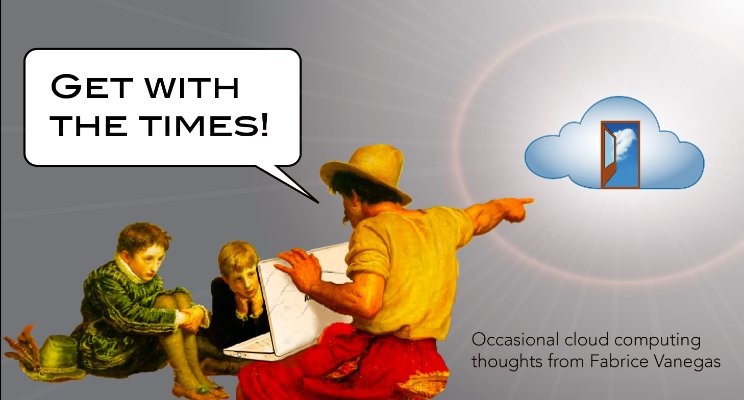Subtitle
ZOHOLIC
Subtitle
ZOHOLIC

"Where it used to take over 75 years of building a company to get onto the S&P 500, today the average age of those companies is less than 10 years. Complacency, and a failure to innovate is a fundamental risk to business, and IT systems are a key part of enabling innovation." - Google.
So here we are, closing the month of January 2017. Hopefully enough time has passed for us to harness the exuberance and optimism of our new year resolutions into action.
So what were those resolutions for you? Let me guess: more money? Spending more time with your loved ones? Getting in shape? Reading more books? Learning esperanto? Becoming a figure-skater? cage-fighter? both!?
Whatever your goals may be, we should perhaps step back and do some serious introspection before leaping forward to pounce on all of them at once. Let us think about our mindset - our operating system if you will. Could it be that it was our mindset, or the way that we always operate, that created the current conditions?
Whenever I face big questions like these, I like turning to a clichee oracle of modern thought such as this guy:

Yep. I'll go with that.
To put it simply, the last thing that a fish thinks about is water. We are creatures of habit. Einstein would probably refer to that as inertia. Decades of cubicle culture, stiff hierarchies, archaic education systems, and herd mentality have certainly taken their toll on us as a species. The prevailing mentality that avoids risk and seeks to above all preserve the status quo is beginning to corner us into fork in the road:
Paradigm shift or stagnation.
Hyperbolic? Perhaps. But in an age of the Internet ignorance is a choice: in 1955, Fortune Magazine listed the 500 largest companies in a list that’s become synonymous with success. 60 years later, only 71 of those companies still remain (source).
It is this inertia which comforts us against the unknown, this clinging to the past which makes the present safe, and the future distant and blurry. Time for another overused quote, this time a Chinese Proverb:
"When the winds of change blow, some build walls, while others build windmills." - Chinese Proverb.
Today Microsoft is the unquestionable market leader in this part of the world. People in the office love their Microsoft Office, their Outlook, their servers, their VPNs. Most professionals may not fully understand all of the moving parts, but it's OK - that's what they pay their IT guys for! These experts will always be able to fix that broken printer, or remind them of that forgotten desktop password (to be fair they occasionally take care of more critical aspects of a business's IT infrastructure)... The wisdom of their in-house IT guy/department, will always keep them up-to-date and the machine will always run smoothly because of these unsung heroes. The company benefits from their expertise and guidance, since they always make the best choices for the organization as a whole.
--- pause to contemplate ---
Taking this thought seriously for even a moment makes me want to spray a mouthful of black coffee on my screen. Of course there are some very rare exceptions, but the vast majority of organizations will benefit massively from going to the cloud. Reduced costs, increased security, real-time collaboration, increased creativity and innovation, and saving tremendous amounts of time are just some of the benefits to this important and eventual transition.
Cloud computing greatly simplifies the messy back-end of IT in a business, eliminating most problems right away, and making the solutions to odd incidentals quick and easy to put in place. The costs to your company for maintaining a server disappear: purchasing the hardware, fixing it when it crashes, replacing or expanding it when it becomes saturated - all things that would be typically handled by the trusty and faithful IT department.
When the decision makers of a company find themselves at the crossroads of evolution and inertia, but do not understand what going to the cloud implies, they invariably turn to their trusted IT person... and then...
Tragedy.
Time and time again too many IT professionals will react in a knee-jerk, red-flag monologue, that will inject fear through unfounded and dismissive conjectures of how the cloud is not safe/proven/feasible. Their mantra echoes on: "stay safe, things are fine the way they are". But this nonsense translates into a simple truth:
IT staff often spend time fixing problems, putting out small fires, that only exist because the company's existing system is crap to begin with. To justify their position, they need to perpetuate the old "this is more complicated than you think, trust me, I'm the expert, I'm on your side, I can fix it." They need to remain relevant, powerful, and necessary - frenetically clawing outward against the cloud. Distorting the perspective of those who hired them to best advise them in the first place seems to be a pretty effective technique to hold on to that mammary gland.
But it does not have to be this way. The truth is that when a company goes to the cloud it can be the best thing ever to happen to an IT professional working there. IT professionals play an important role in the world; diminishing them or their contribution is not the aim of this article. They are talented, well-trained and are able to see things differently from the rest of us mere mortals. This unique skillset, if employed correctly, may well become one of the biggest sources of innovation for a company - propelling it ahead into previously impossible directions.
Going Google would liberate the IT guy's time significantly, allowing him to chase new projects, and undertake transformative initiatives that were previously out of reach. The company would be able to get them to re-engineer processes, and to essentially re-invent things into a forward-thinking reality that is ready for anything. The IT guy could become one of the company's greatest assets.
This rant is getting long, so I will leave you with a two-fold parting thought:
If you are an IT professional with influence over a decision-maker:
Consider the Cloud* as your friend. All of the annoying grind of non-gratifying day-to-day tasks will be greatly reduced, your job will become significantly more interesting - think growth, think innovation! You will finally be able to put in place all of those projects you have been idealizing - taking things to a whole new level, isn't that why you chose your career in the first place? To invent? Accomplish? Dream?
If you are a decision maker looking at ways to evolve your business:
Dare to entertain the possibility that your IT department's first priority may be self-preservation rather than your company's long-term well-being. Be aware that IT guys have a great little sideline when they buy equipment, or purchase additional parts etc. Be conscious of the fact that many employees, regardless of their role, deplore the idea of change - not for any logical reason, but because it is human nature. Please receive your IT guy's input to your decision of going to the cloud as what it is, and do not let it rob you of your opportunity for a brighter future.
So - if you are still on the fence about your business going to cloud, please realize the wave is already here. Either you immediately grab a surfboard and start paddling to enjoy the ride of a lifetime... or you remain frozen, looking at the huge lip of water that is about to come crashing down on you, leaving your head in the sand. Your choice!
Footnote:
*by "Cloud" I mean "Google" - Office 365 is a joke! Cloudish at best, O365 should be avoided like the plague. Costs are higher and the system is an awkward hybrid that has one foot on-premise and the other on the cloud, resulting in a bizarre limbo of the worst of both worlds. Syncs are clumsy, and the whole system is embarrassingly clunky compared to Google's G-Suite (previously "Google Apps"). While I have baggage that can make my point of view biased - I did receive a demo by one of the world's most reputable O365 vendors... it was awkward. To be fair, Office 365 does possess one comparative advantage to Google - it appeases that sense of inertia to those that fear the idea of real change, it is a way for them to continue doing the same thing, under the guise of "going cloud".